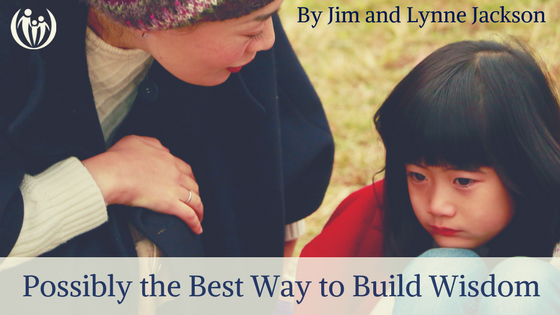
Possibly the Best Way to Build Wisdom

Asking sincere questions, even with small kids, is a great way to build wisdom. Here’s a story a mom emailed to us that shows the difference between making demands and asking questions.
We were getting ready to leave the house, and I told Matthew it was time to go potty before we head out the door. He began to protest, whine big-time, and even throw himself on the floor. I told him again that it was time to go potty, and the same thing happened. Clearly this wasn’t going anywhere, so I stepped back to assess what was happening. I knew there must be a better way to handle this. I remembered the Connected Families principle about how important it is to teach wisdom rather than just give commands. So I tried again. Our conversation went something like this:
Me: What might happen if you don’t go potty before we leave?
Matthew: I might have an accident.
Me: What happens when you have accidents?
Matthew: I get all wet.
Me: Do you like that feeling of being wet and cold?
Matthew: No.
Me: Okay.
I could’ve proceeded on to ask more questions (like, if you don’t like to be wet, then what would be a good choice to make?), but instead I just left it alone. I figured he would probably end up going potty, but if he didn’t and did have an accident, it would be a natural impact that he’d learn from.
It seems so simple. Instead of giving orders, stop and ask questions that help your child identify and compare his options. This isn’t how most parents naturally think to respond, but when they do, children learn to think for themselves. Kids come to understand cause-effect. And they progress more effectively through life.He stopped whining, and within minutes he went in to go potty. He still whined a little because he didn’t want to take off his jammies and be cold. I agreed with him that I don’t like to be cold either…. He seemed to like that I understood and connected with him about that.
How might it turn out if you make a habit of asking questions instead of making demands?
Apply it Now:
- What is a typical power struggle you often have with your child?
- What could be some thoughtful questions you could ask to help her identify her options?
- What questions would help her discover the impact of each choice on her and others involved?
Sign up below to receive a weekly dose of encouragement straight to your inbox:

